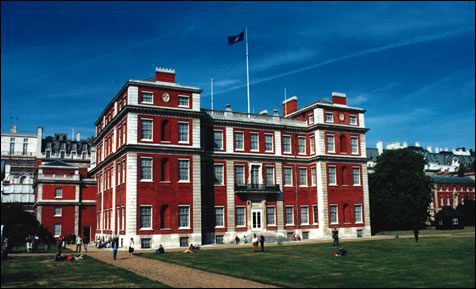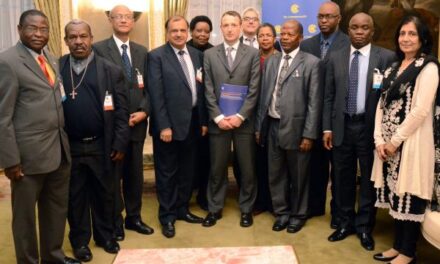
Marlborough House, Headquarters of the Commonwealth Secretariat. photo credit: Commonwealth Secretariat
“They’ve got a little List: it never would be missed”?
(after the Mikado, by Gilbert & Sullivan)
The Commonwealth Secretariat’s work in education is comparatively small beer when compared quantitatively with that of the ‘big boys’ in the world of education co-operation for development. There are only six professionals and two support staff and a core operational budget of a little over £400,000, used mainly for workshops and meetings, consultancies and studies. The main focus of the work in recent years has been on six Action Areas of the EFA campaign.
Should the Commonwealth bother at all with education if that is the sum total of the resources it can devote to the sector? The question has recently been thrown into sharp relief by the Secretariat’s difficulties lately in attracting and retaining the best staff – four divisional Directors in charge of education have departed in the course of less than nine years – and the comparatively low visibility of its recent work in education.
In 2011 Commonwealth Heads of Government met in Australia and instructed the Commonwealth Secretariat that in its next Strategic Plan it should concentrate on fewer areas of activity. When the Secretary-General in response came to formulate his proposals for a new Strategic Plan he picked on human development – primarily education and health – as areas for the chop. To knowledgeable observers this appeared an entirely predictable choice given the priority accorded to democracy and good governance by the more developed countries who are the chief paymasters, but one that was seriously misconceived.
The misconception consists in the surprising judgement that the majority of developing-country governments would attach more importance to governance, democracy and human rights than to the development of education and health. The recent Conference of Commonwealth Education Ministers in Mauritius (August 2012) and the Meeting of Foreign Ministers in New York at the end of September disabused the Secretariat of any such illusion, demanding that education should stay.
An extraordinary aspect of this whole business is the secretiveness with which the Secretariat’s proposals have been prepared. This is supposed to be an organisation espousing openness and transparency but these proposals were formulated behind closed doors and without any proper credible review process that might have shown whether or not the Commonwealth had comparative advantage in educational co-operation. It was only a series of unintended leaks that alerted Commonwealth professional bodies and their friends to mobilise opinion.
The jury is still out – decisions on the new Strategic Plan will be taken on November 29. Hopefully education will survive. The Commonwealth does have considerable comparative advantage in education because of similarities in education structures, the ties of common language, and the strength of its educational infrastructure (Commonwealth Scholarships, Commonwealth of Learning, Commonwealth Education Trust, professional and voluntary associations). Its work on distance education, student and teacher mobility, teacher management and professional development, education in small states has been path-breaking. At the more parochial level of UKFIET, the presence in our councils of senior professional colleagues from the developing world based in London has been valuable and welcome.




